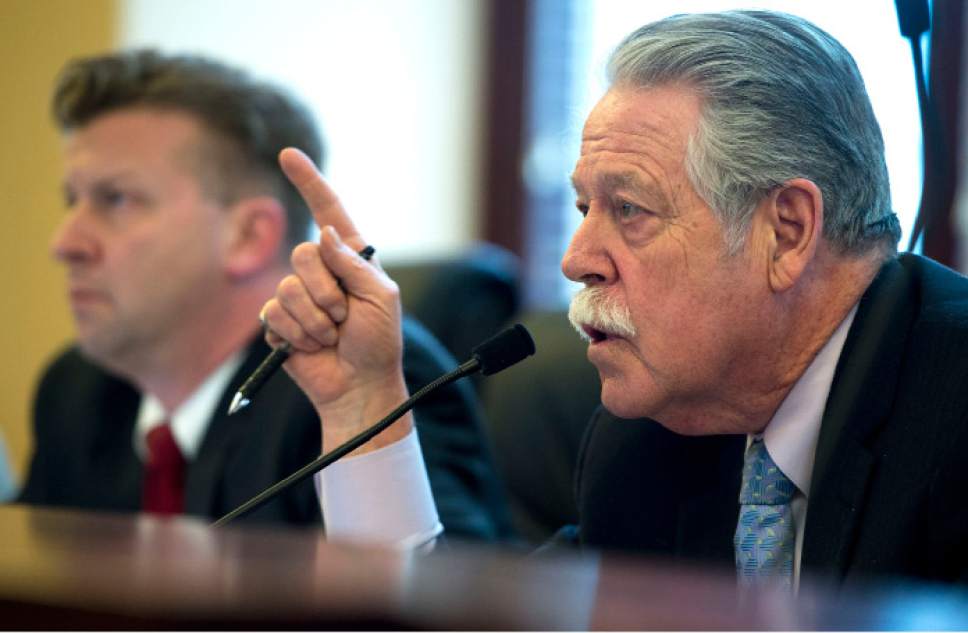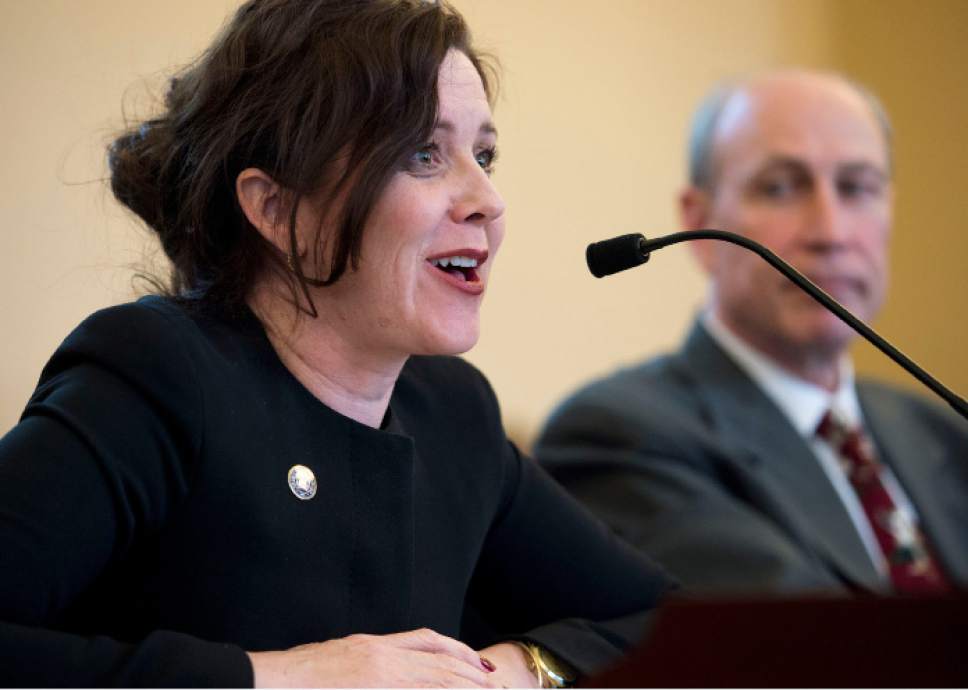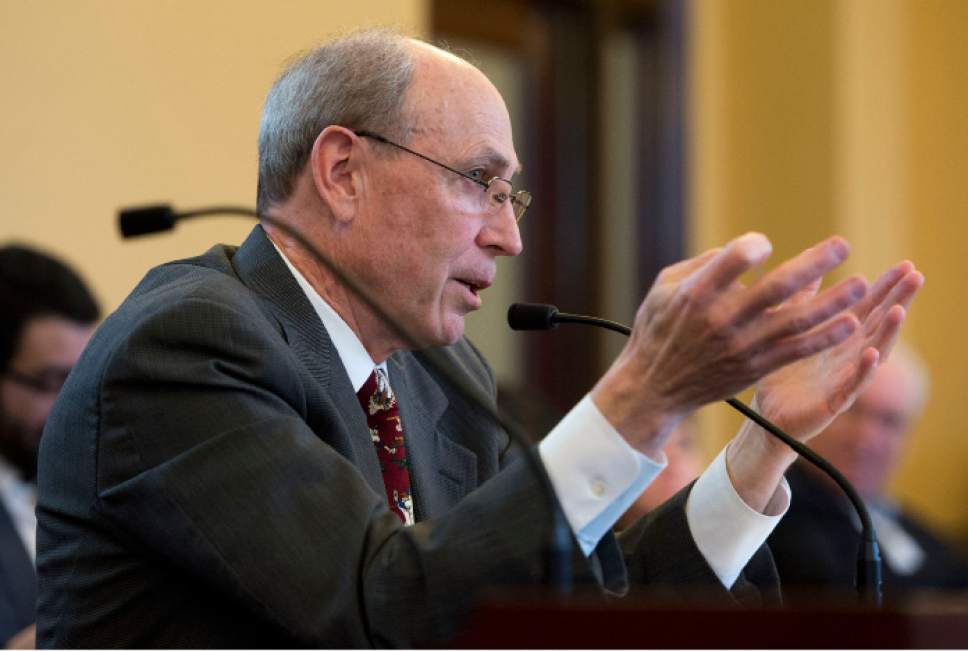This is an archived article that was published on sltrib.com in 2017, and information in the article may be outdated. It is provided only for personal research purposes and may not be reprinted.
After weeks of opposition and controversy, senators on Monday voted down a proposal to stop the current practice of sometimes considering the race or gender of potential judicial nominees to help increase diversity on the bench.
The Senate Judiciary Committee voted 2-3 to kill HB93 — even after its sponsor, Rep. Merrill Nelson, R-Grantsville, had the bill amended to remove its most controversial portions. The bill had earlier passed the House, 47-25.
Nelson has objected to a practice by the Utah Commission on Criminal and Juvenile Justice (CCJJ) to consider the race and gender of people it screens for nomination — if they are otherwise equally qualified.
Nelson had argued that CCJJ was violating the constitutional separation of branches by adopting criteria beyond those set by the Legislature.
He said "it is a fiction" that candidates can truly be equally qualified — so CCJJ should search for the best candidates without taking race or gender into any special consideration.
On Monday as the bill was in trouble, Nelson had it amended to add diversity criteria, leaving HB93 to merely made clear that the Legislature sets evaluation criteria.
Members of the committee, the bar and even the general counsel of Gov. Gary Herbert then questioned whether the bill served any real purpose — and argued for killing it.
"The system isn't broke, and it doesn't need fixing," said Rob Rice, president of the Utah Bar Association.
Jacey Skinner, general counsel to Gov. Herbert, defended CCJJ against earlier attacks that it had broken the law.
"Those are serious allegations," she said, "and are not accurate." She said CCJJ had gone through an open and appropriate rulemaking process and used an open system to vet those recommended to the governor for possible nomination.
, "The process works very well. It is an exemplary process," Skinner said, adding she worried that controversy created by the bill could discourage qualified women and minorities from seeking judgeships.
Currently, nearly 70 percent of Utah state judges are white men and a quarter are white women. Only one black judge has ever been appointed to the state bench here — Tyrone Medley, a former University of Utah basketball star, who served 20 years as a judge until retiring in 2012.
After the vote, Nelson said he thought his bill would pass once he amended it to add back allowing considering diversity.
"I came here today to make peace," he told the committee just before it killed his bill. "There has been controversy over this bill, and it has not been necessary," with opposition by the bar and the American Civil Liberties Union.
Nelson added that he mostly wanted to make clear simply that the Legislature and not the executive branch should set evaluation criteria.







